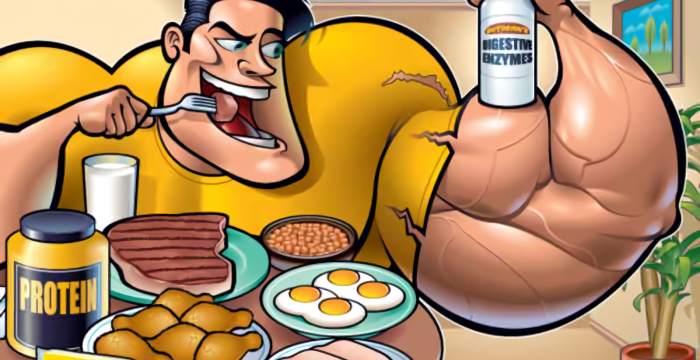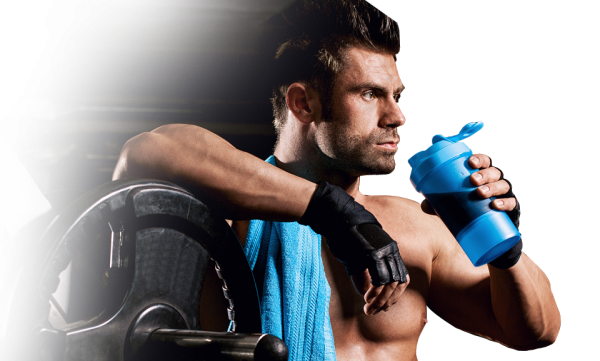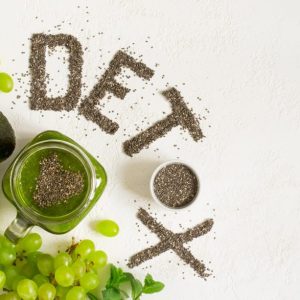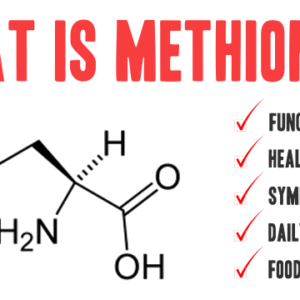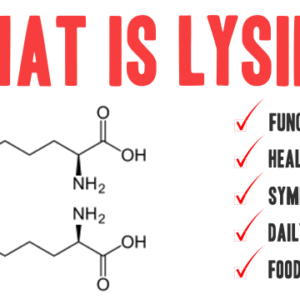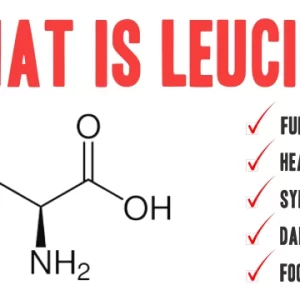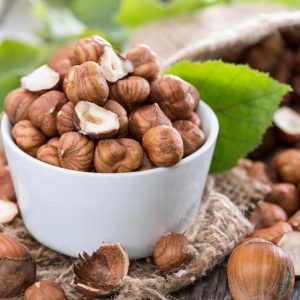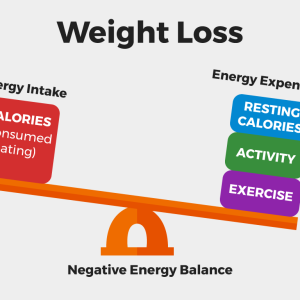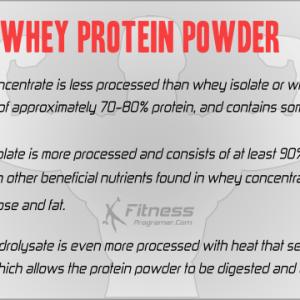The Importance of Nutrition in Bodybuilding
Bodybuilding takes more than just pumping iron. The resistance training will results in those crucial muscle tears that are required to build muscle; however without a strong foundation you won’t get the results you desire.
Just like it’s important to build a physical structure, like a skyscraper, with quality building materials. Your body requires the best quality and best mix of nutrients. This helps to sustain your gains for the long haul and allows you to build muscle in a healthy manner.
Nutrition plays a large part in muscle growth and retention.
Just like with weight loss, muscle gain is a balance between exercise and proper nutrition. The basic bodybuilder diet will change constantly due to changes in muscle mass which affect nutrient needs. And each diet plan that a bodybuilder has will be a little different based on the actual goals you desire. So we’ll do some broad strokes here, but just remember that there is more than one way to achieve your muscle building results.
One thing is pretty well established, however, no matter what you actually eat: It is important to consume small meals frequently during the day. The meals should consist of protein, fiber and complex carbohydrates.
In general, the daily calorie needs of bodybuilders can be between 2000-5000 calories on average. Calculate your calorie needs here.
Macronutrients
Macronutrients, or macros, are three general types of nutrients that provide energy to a person. They are:
Proteins: 25–30% of calories from protein
Carbohydrates: 55–60% of calories from carbohydrates
Fats: 15–20% of calories from fat (1).
Proteins for the Bodybuilder Diet
Proteins are arguably the most important nutrients involved in bodybuilding. Amino acids are the building blocks for more than just muscle; however, they are crucial to build and restore muscle tissue. If your goal is to build muscle size, you need to consume more than the average daily amount of protein. How much more could depend on who you are talking to. Athletes should consume a minimum of 1,5 – 2 grams of protein for every kilogram of body weight each day.
Since you’ll be eating more protein in your bodybuilding diet and pre-training meals, be sure that you understand what other nutrients you need to help your body absorb and process the protein source. You don’t want to over-tax your vital organs. Keep the liver and kidneys cleansed with plenty of hydration. And if you are consuming whey protein then be sure that you’re getting the right vitamin mix to protect your heart.
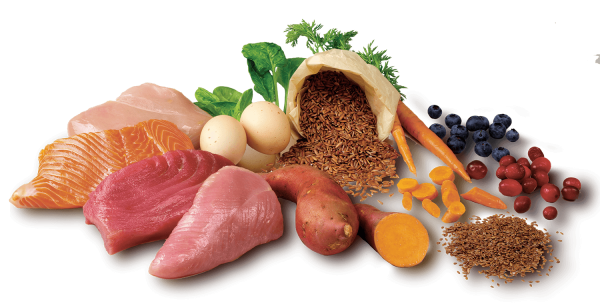
Protein-containing foods: Breast chicken or turkey, fish (tuna, mackerel, salmon, etc.), low-fat beef or veal, tofu, pinto beans, eggs, yogurt (milk, soy milk), nuts (nuts, peanuts, almonds, pumpkin seeds)
For more information on bodybuilding workout plan, be sure to see this article: Click Here
List of High Protein Foods
| Food Source | Protein Content |
| Beef (average of all sources, lean) | |
| Raw 100g | 21g |
| Cooked 100g (130g raw) | 27g |
| Steak (average of all cuts, lean) | |
| Small 120g | 25g |
| Medium 150g | 37g |
| Large 220g | 54g |
| Extra large 300g | 74g |
| T-bone (with bone) | |
| Medium 250g | 55g |
| Large 350g | 77g |
| Mince | |
| Beef mince (regular) 100g | 17g |
| Beef mince (lean) 100g | 20g |
| Chicken | |
| Chicken (lean) 100g | 28g |
| Chicken (with skin) 100g | 25g |
| Pork | |
| Pork (lean cooked) 100g | 23g |
| Bacon (3 medium slices) | 6g |
| Ham (average 2 slices) | 8g |
| Game Meat | |
| Kangaroo 100g | 21g |
| Fish (average of all types) | |
| Small serve 100g | 25g |
| Medium serve 150g | 38g |
| Large serve 200g | 50g |
| Seafood (prawns, crab, mussels, oysters etc) 100g | 17g |
| Salmon (100g can) 80g drained | 17g |
| Tuna (100g can) 75g drained | 20g |
| Eggs | |
| 1 egg | 6g |
| Eggs scrambled (2 eggs with milk) | 13g |
| Milk | |
| Full cream (1 cup) 250ml | 8.5g |
| Low fat (1 cup) 250ml | 10g |
| Soy Milk (1 cup) 250ml | 5.5g |
| Yoghurt | |
| Natural 200g | 8g |
| Low fat 200g | 10g |
| Cheese | |
| Cheddar 30g | 7.5g |
| Cottage 30g | 4.0g |
| Ricotta 30g | 2.5g |
| Bread | |
| White (1 slice) 30g | 2.5g |
| Brown (1 slice) 30g | 3.5g |
| Wholemeal (1 slice) 30g | 6.0g |
| Rye bread (1 slice) 30g | 3.0g |
| Multigrain (1 slice) 30g | 3.0g |
| Soy and linseed (1 slice) 30g | 4.5g |
| Rice, Barley and Pasta | |
| Rice, white (cooked,1 cup) 150g | 4g |
| Rice, brown (cooked ,1 cup) 150g | 5g |
| Barley (raw) 100g | 8g |
| Spaghetti/ Macaroni / Fettuccine (cooked, 1 cup) 150g | 7.5g |
| Cereal | |
| Weetbix (2 biscuits) 30g | 4g |
| Sultana bran (1cup) 48g | 4.5g |
| Nutrigrain (1 cup) 40g | 9g |
| Muesli (untoasted, 1/2 cup) 45g | 5g |
| Rolled oats (raw, 1/4 cup) 30g | 0.5g |
| Nuts and Seeds | |
| Almonds (25-30 nuts) 30g | 6g |
| Cashews (12-16 nuts) 30g | 6g |
| Pine nuts / macadamia 30g | 4g |
| Peanuts 30g | 7g |
| Linseed (2 tbsp) 25g | 8g |
| Pumpkin seeds (3tbsp) 30g | 7g |
| Lentils, Beans and Peas | |
| Lentils (raw) 100g | 29g |
| Chickpeas (raw) 100g | 20g |
| Soy beans (cooked, 1/2 cup) 100g | 16g |
| Baked beans (1/2 large can) 210g | 9.5g |
| Baked beans (large can) 420g | 19g |
| Bean salad (1/2 cup) 120g | 12g |
| Fruits and Vegetables | |
| Fruit, per serve | 0.5 – 2.0 g |
| Mixed vegetables (frozen 1/2 cup) | 2.5g |
| Side salad (average) | 0.5g |
| Brussel Sprouts (4-5 medium) 120g | 4g |
| Peas, fresh (3/4 Cup) 100g | 5.5g |
| Potato (medium) | 3g |
| Tufu and Tempeh | |
| Tofu (firm, raw) 100g | 12g |
| Tempeh (1 piece) 85g | 16g |
| Miso (1/2 cup) 140g | 16g |
Carbohydrates for the Bodybuilder Diet
Protein is important for muscle, but complex carbohydrates and healthy fats help with sustaining high levels of energy. If complex carbs are not consumed in proportion to expended energy, the body will be forced into gaining energy from protein, leading to muscle loss. This is counterproductive to building muscle.
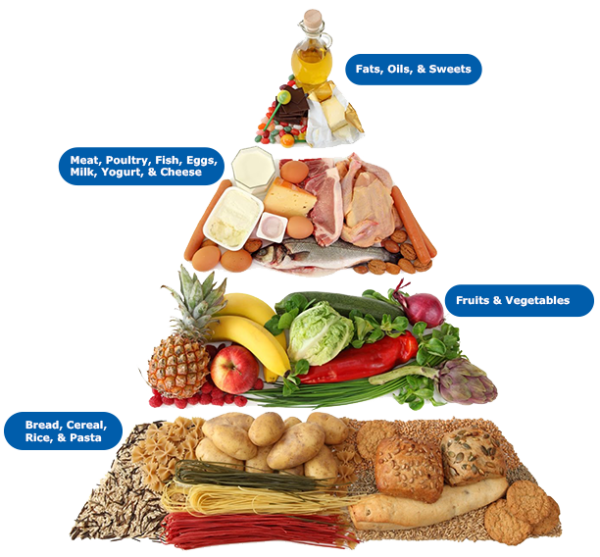
For that reason, it’s a good practice to include the right carb mix in a pre-training meal. How long your workout is will determine how much you need. For example, a workout session with endurance as the goal will require a different amount of carb calories than weight training.
The goal is to supply enough carbohydrate energy so that your body will not tap into your muscle stores to get what it needs.
Oils for the Bodybuilder Diet
A healthy bodybuilding diet has no place for saturated and trans fats. However, sufficient amount of fat must be taken in order to increase metabolism and to ensure that the body uses fat-soluble vitamins to perform hormonal functions. A fat-free diet can inhibit muscle growth in someone who exercises vigorously. About 15 percent to 20 percent of your daily calorie intake should come from healthy fats.
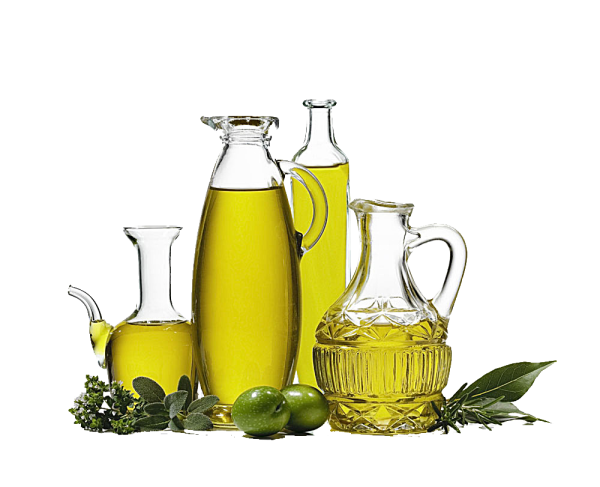
- In order for the fat-soluble vitamins A, D, E and K to be taken into the body and to avoid digestive problems, fat source foods should be taken into the body.
- Fats can be used as an energy source for the body, especially in long-term aerobics. That’s why even the weakest athlete must have fat in their body.
- Since excessive fat consumption may suppress carbohydrate intake, these values should not be exceeded in the sports diet program and sports nutrition scheme.
- Studies have found that fat intake below 15% of daily energy can negatively affect performance. Therefore, very high and low oil consumption should be avoided.
Additional Nutrition
In addition to the nutrients provided by meals, a bodybuilder diet should consist of proper supplementation of other vitamins and minerals.
In a perfect world, we would get everything that we need from the whole foods we eat; however, that’s just not the reality. This is especially true for athletes and those whose lifestyles mirror the physical and mental challenges of an athlete.
But before you think that supplementation is all about cooking something up in the lab, it’s not. A lot of the research behind the best dietary supplements takes the powerful nutrients found in natural food sources and combines them in the right mix to provide the best nutritional support so you can get the best results based on your training an environmental factors.
Face it. Balancing daily meals is difficult enough. And some essential nutrients cannot be consumed in adequate amounts from food sources alone.
Protein supplements, such as BCAA, aid in the recovery and growth of muscle. Supplements are best taken immediately after exercise as the body is better able to metabolize nutrients at this time.
Another important aspect of optimal nutrition is adequate water consumption. Water is a major component of muscle tissue and it is necessary for protein synthesis. It is also essential in fat metabolism, reducing fluid retention and detoxification. You need to consume enough water to support your training.
Vitamins for the Bodybuilder Diet
Each vitamin has very important functions in the body. A healthy bodybuilding diet contains enough vitamins and minerals. While fat-soluble vitamins are vitamins A, D, E, and K, vitamins of group B and C are water-soluble vitamins. Some water-soluble vitamins are necessary for the formation of energy during sports, while others help the oxygen transport by taking part in the structure of red blood cells. Vitamins are also essential for protein synthesis and tissue repair.
- Especially the importance of B group vitamins is more in athletes.
- B group vitamins such as thiamine, riboflavin, niacin and biotin help build energy during exercise.
- Folic acid and vitamin B12 are important for protein synthesis, tissue building and repair.
Minerals for the Bodybuilder Diet
Mineral resources are effective in nerve conduction, muscle contraction and oxygen transport in athletes.
- The most important minerals for athletes are calcium and iron.
- Calcium is involved in controlling blood coagulation, nerve conduction and heart rate. Milk, yoghurt, cheese, oilseeds, legumes and green leafy vegetables are among the calcium source foods.
- Iron mineral is responsible for carrying oxygen to the muscles. Oxygen is needed during energy production. If there is insufficient iron mineral in the blood, the athlete can get tired quickly. Therefore, iron mineral is important for athletes. Liver, red meat, green leafy vegetables, molasses, dried fruits and legumes are among the foods that contain iron mineral.
If the athlete is a vegan, has a bad nutritional habit, is pregnant, has anemia, has menstrual bleeding, and consumes too much smoking and alcohol, vitamin and mineral supplements can be used.
Liquid for the Bodybuilder Diet
Water constitutes 55-70% of the weight, depending on the amount of muscle in the body. It has been observed that the performance of athletes who maintain their body fluid balance during exercise is also higher.
- In the event of fluid insufficiency, ie dehydration, performance is also negatively affected.
- In order to maintain body fluid balance, athletes should consume 400-600 ml of fluid 2-3 hours before exercise; It is recommended that they drink 150-350 ml of water at the beginning of the exercise and every 15-20 minutes afterwards.
- Preferred sports drinks should contain 4-8% carbohydrates and these drinks should be consumed over 1 hour of exercise.
How Should Pre-Workout Nutrition Be?
Optimal intake of nutrients before training not only helps maximize performance, but also minimizes muscle damage. Here are some suggestions for pre-workout nutrition:
- A full meal can be eaten 2-3 hours before training. For example, if you are going to exercise at 5 pm, you can have a full meal at 2 pm or 3 pm.
- If you will start training in 2-3 hours; lean protein source, a grain option such as rice, bulgur, pasta, and low-fiber fruits or vegetables can be consumed.
- Portion sizes vary according to the intensity of the sport, gender and body weight.
- If you will start doing sports in an hour or less; Yogurt and fruit or a protein bar with healthy ingredients can be consumed. If you will start training within 30 minutes; 1 large size banana and coffee can be consumed.
- Before training, foods that do not disturb the stomach and are easy to digest should be chosen. If possible, it should be chosen from previously consumed foods. A new food should not be tried before exercise or competition.
Example pre workout meal:
- Tuna and salad sandwich (wholemeal) and an apple,
- Bowl of oatmeal with 200grams of low fat yogurt and 50g almonds
- Chicken and vegetable stir fry with rice
- 30g of whey protein powder with 250–300ml of skim milk or water and a piece of fruit
Note: The main goal of pre workout meal is to keep you blood sugar levels consistent throughout your training session to prevent muscle catabolism (breakdown of muscle for fuel). Therefore low GI carbohydrates should form the basis of this meal in combination with lean sources of protein.
How Should Post-Workout Nutrition Be?
While doing sports, the muscles use their glycogen stores as an energy source. This, in turn, causes a partial depletion of glycogen in the muscles. After exercise, the body tries to repair damaged muscle proteins and replenish depleted glycogen stores.
Appropriate amounts of carbohydrates and protein should be consumed after exercise to help the muscles replenish lost glycogen and repair it with protein and amino acids.
For example;
- Grilled chicken / meatballs, rice / pasta and vegetables
- Whole grain bread and tuna salad
- Grilled salmon, baked potatoes and lots of salad
If you cannot eat after exercise, a small snack containing carbohydrates and protein such as banana and milk can be made within the first 30-60 minutes for the body to start the recovery process. It is vital to replace the fluid lost by sweating, so plenty of fluids should be consumed after sports.
Is there an ideal time to be eating your post workout meal? Most professional athletes are recommended to satisfy their glycogen window within the first 30mins with a snack, drink or shake and then aim for a balanced post workout meal to be consumed approximately 45-60 minutes after exercise, assuming that there is no more exercise to follow. This is normally achieved with a shake or sports drink as they leave the gym followed by a post workout meal when they get home.
Training: Bulk and Cut
For most competitive bodybuilders, the typical strategy involves bulking, or gaining muscle, for the majority of the year and 12-14 weeks of cutting, or losing fat before competition. During both phases, the athlete has to ensure he or she does not gain too much fat or lose too much muscle. It’s a delicate balance.
To build muscle without increasing body fat, the athlete must consume proper ratios of protein, complex carbs and beneficial fats. During bulking these ratios should equal 15-20 percent protein, 60 percent carbs and 20-25 percent fat.
A meal appropriate for the bulking phase would include:
- 95 grams of mackerel
- 60 grams of chicken breast
- 2 medium potatoes or 200 grams of brown rice or 350 grams of whole wheat pasta
- 1 cup of vegetables
- 4 ounces of low-fat yogurt
- 4-6 amino acid capsules
Bulking meals occur during the “off-season” before the weeks of intense cardio training begin.
During the cutting phase, pre-training meals include those that are consumed immediately before intense physical exertion. At this time, the meals should be made of 20-25 percent protein and 10-15 percent fat.
Cutting meals should contain carbohydrates that provide rapid energy:
- 4 eggs
- 1 slice of pineapple
- 2 hydrochloric acid tablets
- 250 mg of vitamin B6
- 1 cup of coffee
- 1 glass of water
This is just an example, so don’t think that you have to, or should, eat just those two meals for training…that’s just silly!
Planning and sticking to a bodybuilder diet takes much discipline. Patience, training and nutrition are the keys to achieving desired results. The right pre-training meals provide the means to get the best out of each session.

